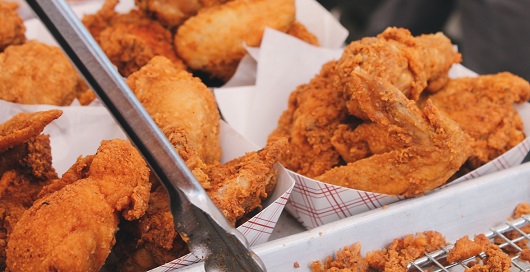Appetite and poverty

This week Dr Boyka Bratanova published research into the psychological mechanisms behind the links between poverty and appetite. Here, she writes about the obesity challenge and why we need to understand the psychology that links poverty, inequality, and eating behaviour.
Let me start with poverty: we know that obesity is strongly associated with poverty. Typically it is believed that this link is due to the low price of high calorie food, or the lack of knowledge, time or energy that prevent poor people from adhering to a healthy diet. Based on this understanding, policies are made in an attempt to reduce the rates of obesity. The introduction of the sugar tax is one recent example.
However, our research shows that there exists a psychological mechanism that links poverty to increased consumption of high calorie food; when people feel poor they consume more of this food, enjoy it more, and report stronger intentions to buy that food in the future. We believe that the increased appeal of high calorie food for people who feel poor is due to an instinct akin to that of animals hoarding for the winter.
In our studies the price of the food was not mentioned, so we were tapping into this instinctual behaviour in isolation. The cheaper price of high calorie food may well be an additional reason why poor people tend to consume it at higher rates; however, it is not the only reason.
Taking into account the psychological instinct to approach and consume high calorie food when tackling obesity is important for at least three reasons.
Firstly, the introduction of consumption tax is essentially an introduction of a flat rate tax, and it hits the poorest the hardest. Provided they consume high calorie food to satisfy a psychological instinct, punishing them to pay higher proportion of their income in consumption tax seems unfair.
Secondly, people who feel poor would probably continue to eat high calorie food at a similar rate as this food provides them with a higher caloric yield. This is hard to overturn, because the urge comes from a perception of their economic reality. So getting them to pay a higher price is unlikely to drastically change their consumption behaviour; instead it is likely to push them further into poverty.
Thirdly, campaigns based around education are likely to induce guilt in poor people, because they convey the message that choosing what to eat is within individuals’ control. Instincts, however, are difficult to control.
In addition to the poverty-obesity link, there is also evidence for a robust association between societal inequality and obesity – more unequal societies have higher rates of obesity, and this is true for all levels of the social gradient. In other words, even the wealthy in unequal societies tend to have higher obesity rates than their counterparts in more equal societies. What we hypothesised and found is that anxiety links inequality to increased consumption of high calorie food. Interacting with unequal others is socially awkward, both for the advantaged and for the disadvantaged. So, to alleviate the unpleasant feeling, people reach for high calorie food.
Taken together, the poor in a society seem to have it the worst – they carry the burden of poverty, suffer emotionally from relative deprivation, pay higher proportion of their incomes in consumption tax, and feel guilty and inadequate because of their eating behaviour. Designing interventions aimed at reducing obesity should therefore take into account the psychology linking this condition to poverty and inequality to avoid doing greater harm than good.
Note to editors:
The paper Poverty, inequality, and increased consumption of high calorie food: experimental evidence for a causal link is available open access for the next 50 days.
Issued by the Press Office, University of St Andrews. Contact 01334 462530 or email: [email protected].
Ref: appetite 200316
Category Research